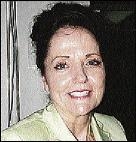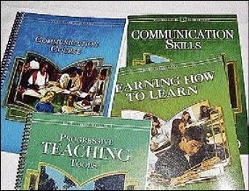
Christine Gerson
A decades-old teaching concept developed by scientology founder, the late L. Ron Hubbard, which appears to guarantee increased learning when applied correctly, has reached Jamaica, after having made an impact in more than 70 countries.
Hubbard, who died in January 1986, developed a revolutionary concept called Study Technology, in the early 1960s, after his investigations into what was causing the decline in learning abilities of his students.
In 1972, based on Hubbard's concept, Applied Scholastics International (ASI), a non-profit, public benefit organisation, was formed to spread the Study Technology concept that, basically, teaches one how to learn.
More than 21 million people worldwide are said to have benefited from Study Technology with approximately 94,000 educators having been trained in the concept.
Applied Scholastics entered Jamaica in 2005, joining other efforts introduced to help improve Jamaica's education programme over the last few years, among them the Expanding Educational Horizons (EEH) and the Caribbean Centres of Excellence for Teacher Training (C-CETT).
Is Study Technology the answer to learning problems of students in Jamaica?
On its first mission four years ago, ASI trained 35 teachers from St John's Primary, the Institute of Higher Learning and Quality Academy, along with Greater Portmore, Ensom City, and Innswood high schools.
However, it was not until former Ministry of Education employee Freda Jones started working with Applied Scholastics that a local office was created in 2007 in Linstead, St Catherine.
Conference
On Wednesday, May 27, and Thursday 28, ASI and Applied Scholastics Jamaica (ASJ) collaborated to stage ASJ's inaugural conference at Shaw Park Beach Hotel in Ocho Rios, St Ann.
Representatives of 15 high, prep, primary and all-age schools from St Catherine, St Ann, St Mary, St James, Kingston and St Andrew attended. So too, representatives from the Ministry of Labour and the private sector.
Christine Gerson, ASI executive vice president, expansion, said participants were introduced to the teaching method as part of their continuing education and professional development "to give them the tools they need to remediate the children".
Gerson said the programme addresses two problems identified by Minister of Education Andrew Holness.
"Either the students aren't finishing because they are so far behind (or) when they come out of school they aren't applying what they know. Our programme addresses both, which is to increase the comprehension and application by the students and to give the teacher the tool they need to be able to do that," Gerson explained.
According to Gerson, the success of Study Technology, in 71 countries so far, has been tremendous.
"It's excellent, it has been very, very successful. We have taken non-performing schools, or underperforming schools, and we've been able to develop their children into students who can actually learn, improve their test scores and graduate."
Freda Jones confirmed the impact of the 2005 visit, saying it has been quite positive with students showing improved academic performances.
"At St John's, it has been quite a success. Sixty grade one (students) started the programme, those who did not show mastery of the readiness inventory. In December, when we administered the same test, 58 of them mastered the four areas and two mastered two of three areas. They are now at grade three and are all in the top five of their respective classes, and we are now waiting to see how they perform in the grade three diagnostic test by the Ministry of Education."
At Institute of Higher Learning, prior to the application of Study Technology, the highest score of 130 students in English Language was 30 per cent.
"Now, none has a score below 50, the scores are between 50 and 85 in English and also in Mathematics. We have seen so much good results from both schools," Jones said.
At Quality Academy, CXC results have moved up marginally.
At Rennock Lodge All-Age, teachers were trained in the concept and in the first year the literacy level moved up five per cent. By the end of the second year, the level had moved up 10 per cent.
"All teachers at the school now have the skills and are working and seeing improvements in the students."
At Ardenne Prep and Extension, work started with GSAT students whose scores in English were between 45 and 50 per cent. At the end of two weeks, the scores had jumped to between 60 and 80 per cent.
Performance levels
ASJ has been assessing the performance levels at schools and telling them what to do and working with them to train personnel. With the training, teachers now have less difficulty reaching students.
"What we basically do is we just zero in on the gaps (in learning) they were having. We don't have to teach the whole thing, just fill the gaps," Jones explained. "But the real beauty about it is we can also train anyone to help the teachers - the bright kids, even parents. We also train persons who want to be private tutors."
According to various websites on the topic, Study Technology enables students to understand and apply what they have studied and to retain this ability throughout their lives.
"In short, then, this Study Technology helps anyone learn anything and has proven to achieve uniform, consistent results wherever it has been applied," said one website.

Technology learning texts.
'It's excellent, it has been very, very successful. We have taken non-performing schools, or underperforming schools, and we've been able to develop their children into students who can actually learn, improve their test scores and graduate.' - Christine Gerson